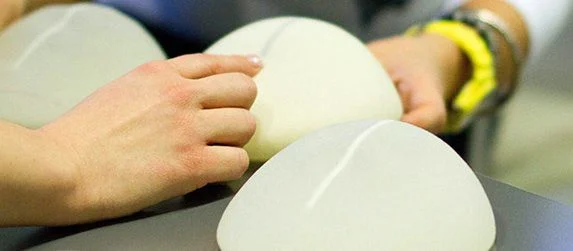To further ensure the safety of patients undergoing treatment for breast or hip implants the European Parliament's Environment Committee has agreed on a revision of the medical implants procedures in order to improve controls.
Monitoring will become stricter and new certification procedures will be introduced in a bid to ascertain medical device compliance and traceability. MEPs also tightened information and ethical requirements regarding diagnostic medical devices used during pregnancy or DNA testing.
Member states will now be consulted for the final rules negotiations for the proposed legislation, which should not create supplementary strains on innovative small manufacturers.
Rapporteur Dagmar Roth-Behrendt (S&D, DE) explains that the current system needs improvement as products initially destined to improve a patients’ state of health are in some cases actually causing harm. ‘Doctors have been telling us that hundreds of hip replacements are defective and have to be taken out again, with huge expenses for the health systems and suffering for patients.’
The PIP breast implant scandal, during which the actual number of patients having received the potentially defective implants remained unknown, has highlighted the need for more clinical data transparency. MEPs suggested the use of a patient ‘implant card’ which would allow recipients to be alerted in case of a further incident with a similar product.
It was discussed that the assessment of medical devices is frequently done by subcontractors, a method that can compromise the actual authentication process. Instead, MEPs would like to see this task assigned to a team of in-house experts fully trained in current qualification requirements, especially with regards to ‘high risk’ medical devices such as those implanted inside the human body.
In addition, the reprocessing of devices labeled ‘single use’ requires clearer responsibilities. Currently, the label is not utilised exclusively for items such as syringes, with certain catheters or forceps being disinfected and reused on other patients. MEPs state that those wishing to reprocess a single-use item must be held accountable and guarantee the traceability of the device, further suggesting the the introduction of a list naming devices unsuitable for reprocessing.
During the meeting, MEPs also set up separate patient safety legislation for the use of in-vitro diagnostic medical devices such as pregnancy tests, diabetes self-tests, and HIV and DNA tests. By calling for the set up of an ethics committee designed to introduce provisions for the informed consent of patients, the commission is aiming to eliminate current problems with unreliable testing devices according to MEP Peter Liese (EPP, DE) who is steering the legislation.
Following a plenary vote both files will be opened for negotiations with Council in the coming weeks, with possible first reading agreements put to a vote in the Public Health Committee. Thereafter, final approval will be sought by the full House.
Nicole Denjoy, Secretary General of the COCIR – the trade body of the European Radiological, Electromedical and Healthcare IT Industry – expresses reservations about the medical implant procedure review in its full extent. Though welcoming certain inclusions and restrictions, she explains that the COCIR’s main concern lies in the impact the adoption of such stringent regulation could have on the industry and public health. With even stricter monitoring and regulation the administrative burden will be increased for Member States and could affect European growth, innovation and jobs. In her statement, Denjoy went on to say that the COCIR believes current regulation is adequate, urging Parliament to focus on avoiding unnecessary administrative layers.
Latest Articles
EU, Implants
To further ensure the safety of patients undergoing treatment for breast or hip implants the European Parliament's Environment Committee has agreed on a re...


![Tuberculosis Diagnostics: The Promise of [18F]FDT PET Imaging Tuberculosis Diagnostics: The Promise of [18F]FDT PET Imaging](https://res.cloudinary.com/healthmanagement-org/image/upload/c_thumb,f_auto,fl_lossy,h_184,q_90,w_500/v1721132076/cw/00127782_cw_image_wi_88cc5f34b1423cec414436d2748b40ce.webp)






